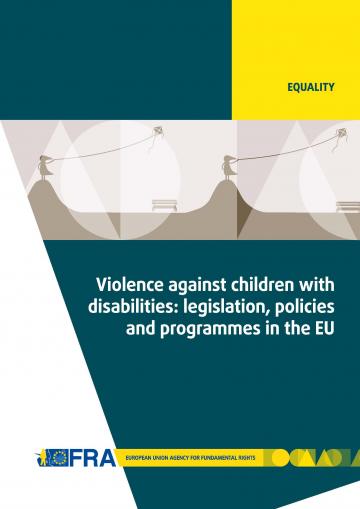Teanga
English

International, European and national law all recognise the right to protection from all forms of violence. But even though protective measures are available, girls and boys with disabilities are more likely than their peers to experience violence, sexual abuse or bullying in schools, at home or in institutions across the European Union; they also often face violence linked to their disability.
The report outlines relevant international and European standards and reviews national legislation and policies addressing violence against children with disabilities. The report also explores the extent and different causes, settings and forms of such violence, and presents measures and initiatives to prevent it.